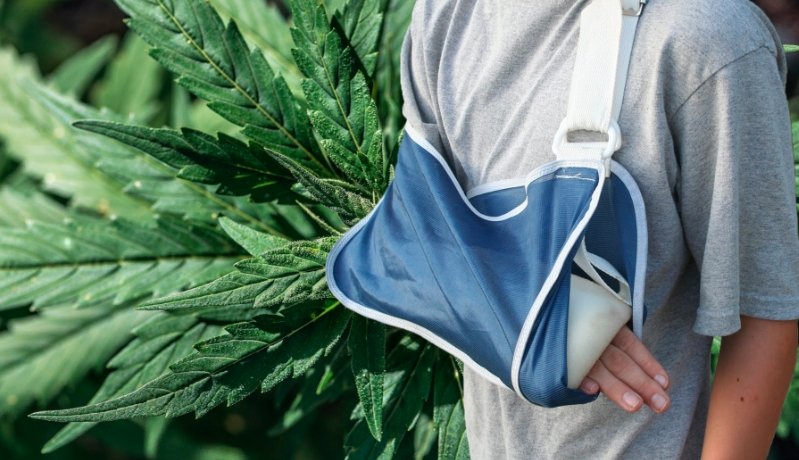Bone fractures are a common and painful injury that affect millions of people every year. Current treatments for managing pain, such as NSAIDs or opioids, have drawbacks such as reducing inflammation, which is essential for fracture healing, or causing addiction and side effects. However, a new study from Penn State College of Medicine suggests that two cannabinoids, CBD and CBG, may offer a better alternative for pain relief and fracture healing.
CBD and CBG: What are they and how do they work?
CBD and CBG are two of the many compounds found in the cannabis plant. Unlike THC, the main psychoactive component of cannabis, CBD and CBG do not cause intoxication or euphoria. Instead, they interact with the endocannabinoid system, a network of receptors and molecules that regulate various physiological processes, such as pain, inflammation, mood, and bone metabolism.
According to the study, published in the Journal of Bone and Mineral Research, CBD and CBG can bind to different receptors in the endocannabinoid system and modulate their activity. For example, CBD can inhibit the enzyme that breaks down anandamide, a natural endocannabinoid that reduces pain and inflammation. CBG can activate the CB2 receptor, which is involved in bone formation and resorption.
The study: How CBD and CBG affect fracture healing and pain in mice
The researchers used mice models to test the effects of CBD and CBG on fracture healing and pain in two stages: early and late. In the early stage, they administered CBD, CBG, or NSAIDs to the mice one hour after inducing a tibia fracture and then every 12 hours for three days. In the late stage, they administered the same treatments every 24 hours for 14 days.

The researchers measured the pain levels of the mice using a behavioral test that assessed their sensitivity to touch and temperature. They also analyzed the fracture healing process using various methods, such as microscopy, imaging, and biomechanical testing.
The results: CBD and CBG promote fracture healing and manage pain effectively
The researchers found that CBD and CBG were comparable to NSAIDs in reducing pain in the early stage of fracture healing. However, unlike NSAIDs, CBD and CBG did not interfere with inflammation, which is necessary for the initiation of fracture healing.
Moreover, CBD and CBG enhanced the fracture healing process in both the early and late stages. In the early stage, they increased the number of bone progenitor cells, which are responsible for producing new bone cells. In the late stage, they accelerated the mineralization and remodeling of the newly formed bone, resulting in higher bone density and strength.
The researchers concluded that CBD and CBG could be potential analgesics that effectively manage bone fracture pain and promote healing in mice. They also suggested that the cannabinoids could have therapeutic benefits for other bone disorders, such as osteoporosis and osteoarthritis.
The implications: What does this mean for humans?
The study is the first to investigate the effects of CBD and CBG on fracture healing and pain in mice. However, the results may not be directly applicable to humans, as there are differences in the anatomy, physiology, and metabolism of mice and humans. Therefore, more research is needed to confirm the safety and efficacy of CBD and CBG for human fracture patients.
Nonetheless, the study provides a promising insight into the potential of cannabinoids as alternative treatments for bone fractures. CBD and CBG could offer advantages over NSAIDs or opioids, such as preserving inflammation, enhancing fracture healing, and avoiding addiction or side effects. Furthermore, CBD and CBG could be administered orally, topically, or locally, depending on the preference and condition of the patient.
The researchers hope that their findings will inspire further studies and clinical trials to develop cannabinoid-based formulations for fracture healing and pain management.



